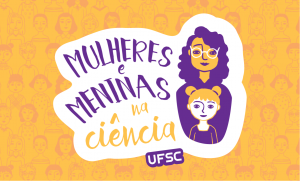UFSC will require proof of vaccination against Covid-19 for first-year enrollment in undergraduate programs
Candidates approved for admission to undergraduate programs at the Universidade Federal de Santa Catarina (UFSC) in 2022 will have to present proof of vaccination against Covid-19 to be able to enroll at the University.
The obligation is for those approved in the UFSC Entrance Examination (Vestibular) 2022, in the Unified Selection System (SiSU/Enem), and in the complementary selection processes: additional seats for the Black Ethnic-Racial Group/2022; additional seats for Indigenous People and Quilombolas/2022; Entrance Exam UFSC/2022 – Rural Education; Entrance Exam UFSC 2022 – Brazilian Sign Language; and Entrance Exam UFSC 2022 – Indigenous Intercultural Education. Students admitted as transfer and returning students must also present proof of vaccination.
The determination is contained in the Normative Resolution no. 103/2022/CGRAD, unanimously approved by the UFSC Undergraduate Studies Council on 9 February.
The proof will have to be presented together with the other documents required for enrollment at UFSC. Students will have to present to their Program’s Coordination Office a proof of immunization with at least one dose of the vaccine.
The vaccination certificate issued on the ConectSUS platform or a “vaccination voucher/booklet/card/passport printed on letterhead, issued at the time of vaccination by a Brazilian or foreign government institution, with legible data and correct identification of the bearer” will be accepted as proof according to the Resolution.
Persons with a medical contraindication to vaccination will be able to carry out the initial enrollment by presenting a medical certificate of the contraindication. The medical certificate must detail the medical reasons for the contraindication and, in case of doubts on the part of the Coordinators at the time of enrollment, the certificate may be sent to the Student Administration Department (DAE) and a Medical Committee to assess the adequacy of the contraindication. Anyone who does not present proof of vaccination or certificate of contraindication will not be able to enroll at UFSC.
The Prorector for Graduate Studies, Professor Daniel de Santana Vasconcelos, recalls that there was already a requirement for proof of vaccination to participate in the University Entrance Examination and in the other in-person selection processes for admission to UFSC undergraduate programs in 2022. “This is a control situation for the first-year students’ semester”, he says. He points out that the process involves a smaller number of students, distributed in almost a hundred programs, which makes the presentation of documents to Program Coordinators possible.
The committee appointed by the Rector to propose the conditions for the immunization requirements at UFSC is preparing a broader regulation in relation to the “vaccination passport”, which should be valid for all UFSC students, taking into account the planning for the beginning of the 2022/1 academic semester.
The committee is chaired by the Prorectorate for Undergraduate Studies (PROGRAD) and composed of members from the Prorectorate for Student Affairs (PRAE), the Prorectorate for Graduate Studies (PROPG), the Prorectorate for Administration (PROAD), the Prorectorate for Personnel Management and Development (PRODEGESP), the Office of Planning and Budget (SEPLAN), the University Library (BU), and the Superintendency of Electronic Governance and Information and Communication Technology (SeTIC), in addition to the Rector’s Office.
“For all University students, we are planning, as is happening in the case of faculty and staff, a specific system or platform to load and control information, robust enough to handle a large volume of people providing information; after all, there are more than 30,000 undergraduate students and 10,000 graduate students”, says the Prorector for Undergraduate Studies.
Translated by SINTER/UFSC.
Read the original article here.





 11 February is annually marked by the International Day of Women and Girls in Science, which has been institutionally celebrated at UFSC since 2021. The University has been taking actions that aim at seeking gender equality in science and, consequently, at the institution. In the last year, UFSC established a committee to implement equity policies; launched a course for undergraduate students on the subject; and awarded women scientists. In 2022, new goals are set with the creation of a permanent and representative committee and the planning of new advances that can be institutionalized on a permanent basis.
11 February is annually marked by the International Day of Women and Girls in Science, which has been institutionally celebrated at UFSC since 2021. The University has been taking actions that aim at seeking gender equality in science and, consequently, at the institution. In the last year, UFSC established a committee to implement equity policies; launched a course for undergraduate students on the subject; and awarded women scientists. In 2022, new goals are set with the creation of a permanent and representative committee and the planning of new advances that can be institutionalized on a permanent basis. The Universidade Federal de Santa Catarina (UFSC) will require from all faculty, staff and other professionals working at UFSC a certification of complete vaccination cycle from the beginning of phase 2, which starts on 14 February. The measure
The Universidade Federal de Santa Catarina (UFSC) will require from all faculty, staff and other professionals working at UFSC a certification of complete vaccination cycle from the beginning of phase 2, which starts on 14 February. The measure 

